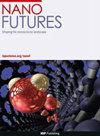使用正交分析方法剖析脂质纳米粒子的理化属性
IF 2.5
4区 材料科学
Q3 MATERIALS SCIENCE, MULTIDISCIPLINARY
引用次数: 0
摘要
脂质纳米粒子(LNPs)已成为复杂 RNA 分子给药领域的主要颠覆者。原型纳米药物的广泛适用性有可能满足临床需求,用于治疗目前无法治疗的疾病。评估这些原型纳米药物的分析技术的吸收和实施并没有经历类似的增长速度,因此阻碍了 LNPs 的转化。在此,我们通过对生产工艺参数影响的研究以及冷藏和超低温条件下的制剂稳定性评估,选择了常规和高分辨率的正交分析技术来评估一种模型 RNA-LNP 制剂。我们使用zetasizer动态光散射和纳米粒子跟踪分析法,通过工艺对制剂关键质量属性的影响、短期冷藏稳定性评估和冷冻储存稳定性,分析了阳离子RNA络合LNP制剂模型。我们还利用高分辨率场流分馏技术评估了冷冻/解冻对 LNP 制剂造成的应力。我们还进行了统计分析和技术之间的相关性分析,以进一步加深我们对 LNP 制剂设计及其理化属性的理解,从而促进 LNP 制剂的临床转化。本文章由计算机程序翻译,如有差异,请以英文原文为准。
The use of orthogonal analytical approaches to profile lipid nanoparticle physicochemical attributes
Lipid nanoparticles (LNPs) have become a major disruptor within the drug delivery field of complex RNA molecules. The wide applicability of prototype nanomedicines has the potential to fill clinical requirements for use against current untreatable diseases. The uptake and implementation of analytical technologies to evaluate these prototype nanomedicines have not experienced similar growth rates, thus hindering the translation of LNPs. Here, we evaluate a model RNA-LNP formulation with a selection of routine and high-resolution orthogonal analytical techniques across studies on the manufacturing process parameter impact and formulation stability evaluation under refrigerated and ultra-low temperatures. We analysed a model cationic RNA-complexed LNP formulation via the process impact on formulation critical quality attributes, short-term refrigerated stability evaluation and frozen-storage stability using zetasizer dynamic light scattering and nanoparticle tracking analysis. We also evaluated freeze-/thaw-induced stress on LNP formulation using high-resolution field-flow fractionation. Statistical analysis and correlations between techniques were conducted to further enhance our understanding of LNP formulation design and its physicochemical attributes to facilitate LNP formulation clinical translation.
求助全文
通过发布文献求助,成功后即可免费获取论文全文。
去求助
来源期刊

Nano Futures
Chemistry-General Chemistry
CiteScore
4.30
自引率
0.00%
发文量
35
期刊介绍:
Nano Futures mission is to reflect the diverse and multidisciplinary field of nanoscience and nanotechnology that now brings together researchers from across physics, chemistry, biomedicine, materials science, engineering and industry.
 求助内容:
求助内容: 应助结果提醒方式:
应助结果提醒方式:


